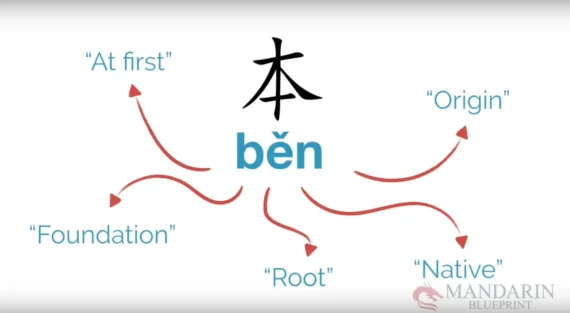So Many Ways to Say “Goodbye in Chinese”

We’ve previously covered the nuances of saying hello in Chinese, which is essential for initiating conversations. But what about concluding them with a “Goodbye”? Just like greetings, farewells in Chinese can be diverse and context-specific.
There are a surprising number of different ways to say goodbye, catering to various situations such as work environments, casual meetings with friends, romantic farewells, or formal settings. Understanding how to say goodbye in Chinese isn’t just about knowing the words. It’s about grasping the cultural and situational appropriateness of each phrase.
In this post, we’ll look into the intricacies of saying goodbye in Chinese, ensuring you leave a lasting impression whether you’re concluding a business meeting, parting ways with friends, or ending a first date in China. From the casual “再见” (Zàijiàn) to more formal or heartfelt farewells, we’ll cover pretty much all you’ll need to know to navigate this aspect of Chinese social etiquette.
The “standard” Chinese goodbyes
The Chinese language offers multiple ways to say goodbye, each with its unique cultural connotation and appropriate context. Let’s explore some of the standard farewells in Chinese.
拜拜 (bāibāi – “Bye Bye”)
This slang phrase is somewhat informal and playful. It’s a direct loanword from English and has a lighthearted tone. You might not use it with someone you don’t know very well, as it has that touch of familiarity to it. It’s super common amongst younger people or when older individuals are addressing youngsters. The usage reflects the influence of Western culture and is a testament to the dynamic nature of language.
再见 (zàijiàn – “Goodbye/See you again”)
This is the traditional and most neutral way of saying goodbye in Chinese. It’s composed of two characters: 再 (zài), meaning “again,” and 见 (jiàn), which means “to see.” So, it’s basically you saying, “see you again.” Both characters are pronounced in the fourth tone. This goodbye is suitable for almost any situation, neither too formal nor too informal.
一会儿见 (yīhuǐrjiàn – “See you in a while/later”)
Here, 一会儿 (yīhuǐr) translates to “a while” or “in a while.” Use this when you’re parting with someone but anticipate seeing them again on the same day. It’s a common phrase among friends and colleagues.
再会!(zàihuì – “Meet you again/See you later”)
This phrase, though formal, is a beautiful way to part ways. It combines 会 (huì), meaning “to meet,” with 再 (zài), meaning “again.” The literal translation is “Until we meet again.” This one is more formal and less frequently used, but it carries a sense of earnest anticipation for the next meeting.
再联系 (zàiliánxi – “Let’s stay in touch”)
Comprising 再 (zài), meaning “again,” and 联系 (liánxi), meaning “to contact,” this phrase is often used in professional or networking contexts. It implies a desire to maintain contact or a professional relationship.
回头见 (huítóujiàn – “See you later”)
This phrase is quite colloquial. 回头 (Huítóu) literally means “to turn one’s head around,” but figuratively means “later.” It is the equivalent of saying “See you later” and is often used among friends or casual acquaintances.
明天见 (míngtiānjiàn – “See you tomorrow”)
Ideal for everyday farewells, like when you’re parting with classmates or coworkers at the end of the day. It’s straightforward and implies that you’ll meet again the next day, obviously.
周一见 (zhōuyījiàn – “See you on Monday”)
This phrase is often used at the end of the workweek, implying that the next meeting will be on Monday. It’s a clear way to indicate the timing of the next encounter, typically in a workplace setting.
Understanding these variations of saying goodbye in Chinese enriches your communication, allowing you to navigate social interactions more easily with cultural awareness and sensitivity.
Related Reading: 20 Ways to Improve Your Mandarin Speaking Skills FAST
Formal ways of saying goodbye in Chinese

In formal settings, the Chinese language provides farewell expressions that convey respect and politeness. These phrases are particularly important in a professional or formal social context, where proper etiquette is highly valued. Let’s explore some of these formal ways of saying goodbye in Chinese:
失陪了 (shīpéi le – “Excuse me, I must leave”)
This phrase is a very polite and formal way of excusing oneself. It’s especially appropriate in a work environment or during formal gatherings. The phrase indicates that you’re departing but does so with a high degree of respect and courtesy.
失陪一下 (shīpéi yīxià – “Excuse me, but I have to leave you for a while”)
Similar to the previous phrase, this version adds 一下 (yīxià), which means “a bit” or “for a moment” in Chinese. This addition softens the phrase, suggesting a temporary departure rather than a final goodbye. It’s a subtle way of indicating that you hope or expect to return.
我先告辞了 (wǒ xiān gàocí le – “I’ll take my leave”)
This phrase is composed of 我 (wǒ) meaning “I,” 先 (xiān) “first,” 告辞 (gàocí) “to take leave,” and 了 (le), a marker indicating a change of state or completion of an action. The phrase translates to “I’ll take my leave first.” It’s used when you’re the first to leave a group or in a situation where you need to depart before others. This phrase is suitable in more formal settings or when showing respect, such as when leaving a meeting with higher-ranking individuals or elders.
告辞 (gàocí – “I’m leaving”)
This is a more concise and very formal way to announce one’s departure. It’s typically used in highly formal situations and is less common in everyday conversation. It conveys a sense of formality and respect, suitable for official events or when addressing someone of high status or seniority.
Each of these phrases demonstrates the importance of context and respect in Chinese culture, especially when saying goodbye in Chinese. Using the appropriate formal farewell not only shows your understanding of the language but also your respect for the cultural nuances and social hierarchies inherent in Chinese-speaking environments.
Related Reading: Debunked: Common Myths about Learning Chinese
Other ways of saying goodbye in Chinese

The Chinese language, rich in expressions and cultural nuances, offers various additional ways to say goodbye, each fitting slightly different contexts and emotions. Let’s explore some of these expressions.
后会有期 (hòu huì yǒu qī – “Farewell”)
This phrase, often heard in Chinese movies, carries a poetic and somewhat dramatic tone. It’s used when the next meeting with the person is uncertain, imbuing the farewell with a sense of hopeful expectation. It translates to a more profound and heartfelt “Farewell,” and using it can seriously surprise and impress native speakers due to its elegant and literary nature.
保重 (bǎozhòng – “Take care”)
A warm and caring expression, “保重” is used when you wish to convey concern and care as you part ways. It’s particularly impactful when addressing someone you respect or care deeply about. To add an extra wish for a pleasant journey, you can say “一路顺风 (yī lù shùn fēng — May the wind be with you!)”. Both phrases are common and leave a lasting impression, especially with elders or those in a higher social position.
慢走 (Mànzǒu – “Walk slowly”)
This is a less formal but very culturally significant way of telling someone to take care as they leave. It’s a typical phrase for a host to use when seeing off guests, emphasizing care and safety as they depart.
挂了 (guàle – “I am going to hang up”)
Used in phone conversations, this phrase is straightforward and indicates the speaker’s intention to end the call. It’s casual and can be used with friends, family, or even colleagues in an informal context.
有空再聊 (yǒukòng zài liáo – “When you’re free, let’s chat again”)
A very casual and genuine way to end a conversation, this phrase is perfect for friends or close acquaintances. It implies a desire to continue the conversation in the future when both parties have time.
下次见 (xiàcìjiàn – “See you next time”)
“下次” means “next time,” and this phrase is a casual way of saying goodbye until the next meeting. It’s commonly used among friends and suggests an expectation of future encounters.
保持联系 (Bǎochí liánxì – “Keep in touch”)
Often used when parting for an extended period, this phrase is a way of expressing a desire to stay connected. It’s common in both personal and professional contexts and is a way to show that you value the relationship and wish to maintain communication.
Each of these phrases provides a unique way to conclude interactions in Chinese, reflecting the cultural importance of parting words. They range from formal to casual and from poetic to straightforward, showing the richness and versatility of the Chinese language in expressing farewells.
Related Reading: 9 Key Differences Between Western and Chinese Business Culture
Precise time goodbyes in Chinese

In Chinese, specifying the time of the next meeting when saying goodbye is a common and practical way to end a conversation. This method uses the verb 见 (jiàn), which means “to see,” and by prefacing it with a specific time, you create a precise farewell phrase. This format is versatile and can be adapted to a wide range of situations, making it an essential part of conversational Chinese. Let’s jump into some examples.
回头见 (Huítóujiàn – “See you later”)
Used when you expect to see someone later the same day. It’s casual and commonly used among friends or colleagues.
明天见 (Míngtiānjiàn – “See you tomorrow”)
A straightforward phrase for when you’re planning to meet the same person the next day. It’s perfect for daily interactions, such as with classmates or coworkers.
晚上见 (Wǎnshàngjiàn – “See you this evening/tonight”)
Ideal for concluding a conversation when you have plans to meet later in the evening. It sets a clear expectation for a later rendezvous on the same day.
星期三见 (Xīngqīsānjiàn – “See you Wednesday”)
This phrase is useful for scheduling a meeting or a casual get-together on a specific day of the week, in this case, Wednesday.
两周后见 (Liǎng zhōu hòu jiàn – “See you in two weeks”)
When you’re planning to meet someone in a couple of weeks, this phrase clearly communicates the timing of your next encounter.
一会儿见 (Yīhuǐrjiàn – “See you in a while”)
A common phrase for a short-term farewell, indicating that you’ll be seeing each other again soon, typically later the same day.
All of these phrases are flexible tools for saying goodbye in Chinese, suitable for friends, family, or colleagues. Sometimes, you might even hear combinations of some of these phrases. The precision in these expressions not only conveys clear information about future meetings but also reflects the value placed on time and planning in Chinese culture. Using these phrases correctly can help you navigate social situations with ease and show your understanding of Chinese social norms.
Unlock the secrets of Chinese goodbyes
As we’ve seen, the Chinese language is rich with diverse and context-specific ways to say goodbye. Each phrase carries its own cultural significance and appropriate usage, from the casual 拜拜 (báibái) to the formal 失陪了 (shīpéi le). Mastering these expressions isn’t just a case of language proficiency. It’s about connecting with Chinese culture and people on a deeper level.
Imagine the doors that will open when you’re not just speaking Mandarin but living it. Picture the impressed looks of native speakers as you bid farewell in perfectly pitched tones and tone changes, whether it’s a casual encounter or a formal meeting. Your journey to fluency is filled with these milestones, each one bringing you closer to true cultural immersion.
But how do you bridge the gap from learning phrases to becoming a fluent, confident Mandarin speaker? The answer lies in understanding your current level of Mandarin and knowing exactly what to focus on next. That’s where our free Mandarin Fluency Scorecard comes in.
Want to learn Mandarin faster and easier? Complete the Scorecard now, and in less than a minute, receive an assessment of your current Chinese skill level and a tailored guide to fluency. You’ll identify your personal weaknesses and barriers, discover the next steps based on your current level, and get a custom report with immediate action steps.
This isn’t just a learning tool. It’s your personal roadmap to fluency.
(It’s FREE and takes under 60 Seconds.)
Begin on your journey to Mandarin mastery today. Don’t just learn phrases. Live the language. Let’s make your dream of fluency a reality. Click the Scorecard now and start your transformation!








